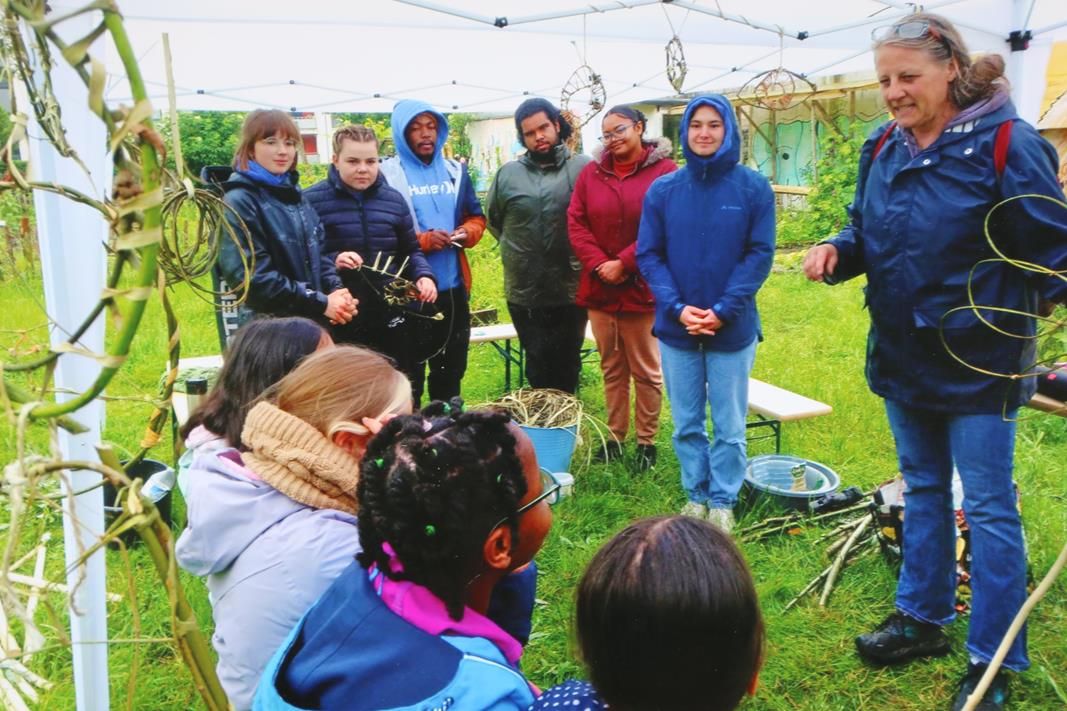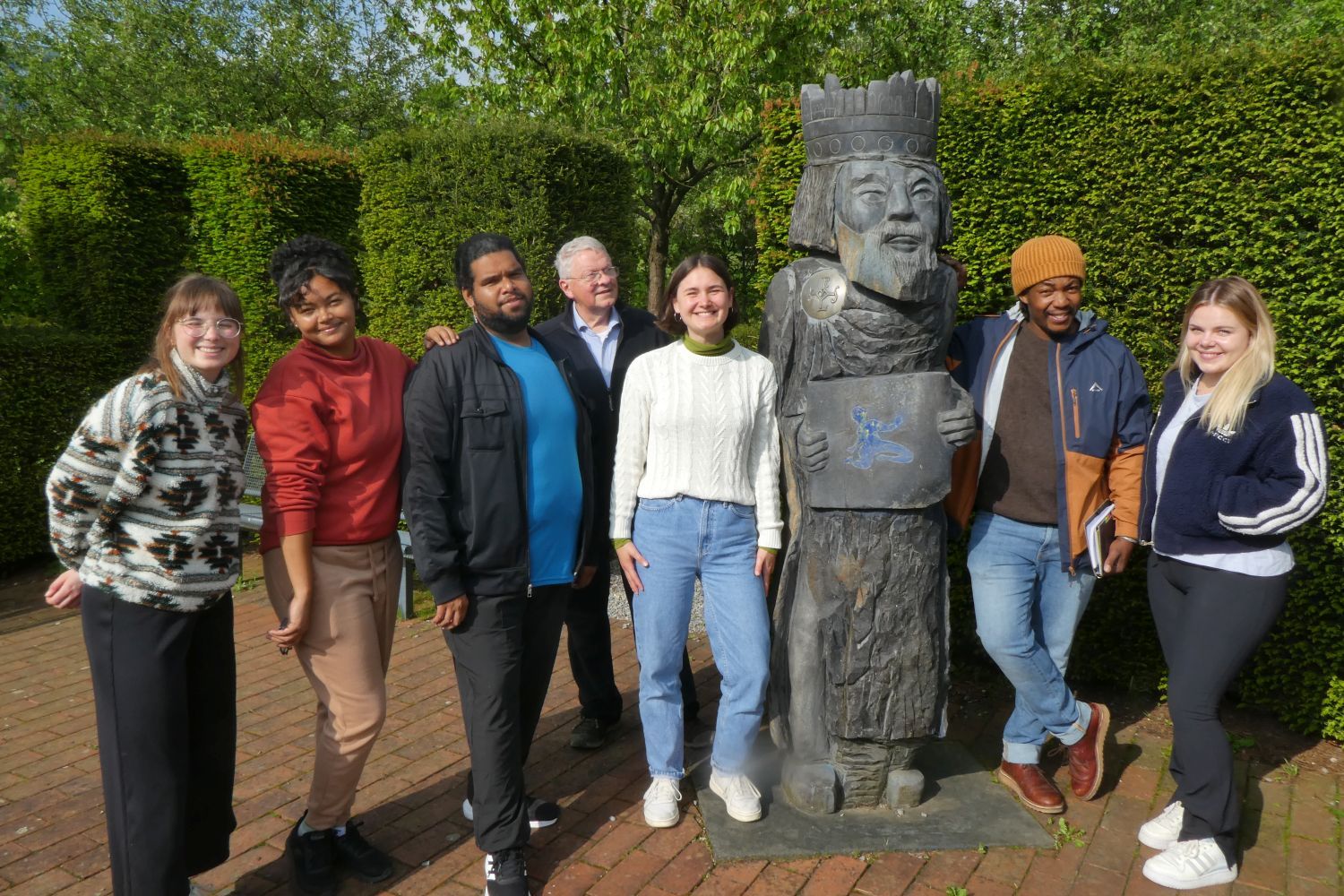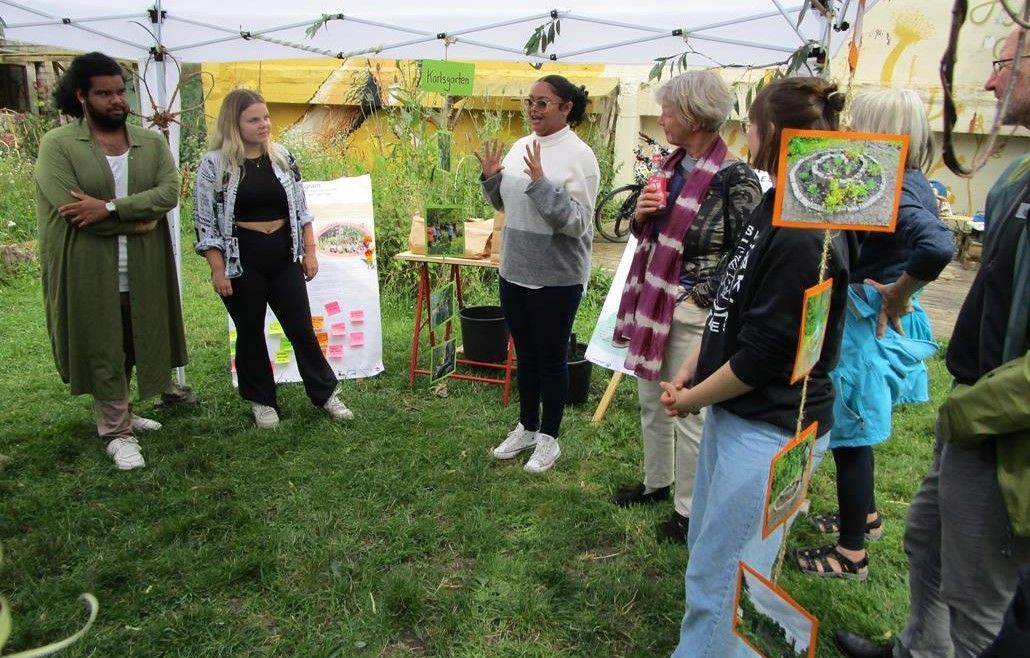Gardens in Aachen
The overall aim of the Aachen-Cape Town-Project is to enhance biodiversity and foster food security. The idea is to familiarize people with urban gardening and educate and raise awareness about biodiversity and urban food systems. The project phases are each three months, April to July 2024 in Aachen and September to December 2024 in Cape Town. The partnership association showed the six participants (three from South Africa and three from Germany) 10 different urban gardening projects in Aachen in the first few weeks, from which the participants selected four to work on in more detail.
Büchelgarten
Our efforts at Büchelgarten were aligned with a political initiative to create a greener urban space in the city centre. We contributed by building a tipi and helping to clear the area, significantly improving the garden’s overall condition. We assisted in constructing furniture structures, making the garden more user-friendly. During the Kimiko Festival, we actively participated at the Büchelgarten stand, promoting the garden’s mission and engaging with the community.



Heinrich Heine Comprehensive School
At Heinrich Heine School we focussed on transforming the school garden into a vibrant learning space. A key feature of this transformation was building a herb spiral garden, which serves both, educational and practical purposes. We collaborated with adolescent groups, encouraging them to take an active role in the garden’s development. This project not only beautified the school grounds but also provided a hands-on educational experience for the students.



Hirschgrün Community Garden
The overall aim of our work at Hirschgrün was to connect children to gardening and nature. We supported the garden by engaging with various children groups, fostering their interest in the environment. Together we constructed structures using willow bark, enhancing the garden’s aestetic and functional appeal. Additionally we built fences to protect the community garden, ensuring it remains a safe and welcoming space for all.



Karlsgarten
Karlsgarten was the highlight of our project, primarily due to the introduction of Bokashi composting, which offers numerous environmental benefits. We gained hands-on experience with Bokashi, learning how it enhances soil health and reduces waste. Additionally, we learned about pruning fruit trees and the local varieties of apples, deepening our horticutural knowlidge. This garden not only expanded our skills, but also demonstrated the impact of sustainable practises in gardening.



On the 6th of July 2024, we presented the results of the project phase in Aachen to all the people who had been involved at a festival at Hischgrün: Permablitz.



